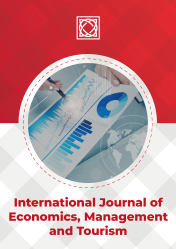QUALITY SYSTEM MANAGEMENT IN THE HOTEL INDUSTRY IN THE REPUBLIC OF NORTH MACEDONIA
DOI:
https://doi.org/10.46763/IJEMT2441105mKeywords:
business processes, hotel service, TQM (Total Quality Management) systemAbstract
The introduction of the TQM (Total Quality Management) system in the hotel industry requires a complete understanding of the needs and demands of tourists, respect for the established standards and the creation of products with superior values that will meet or exceed their expectations with their quality. Total quality management applies to the entire organization, in all hotel activities and functions (reception, accommodation, procurement, sales, marketing, kitchen block, service, technical maintenance, hygienic maintenance, etc.). In this way, the established system will enable the hotel company to continuously improve its performance, whereas the needs of all interested parties participating in the process of creating and delivering the hotel product must not be neglected. Analyzing the findings of the research, this paper provides guidelines for the direction in which the hotels in the Republic of North Macedonia should move by applying the principles of the process orientation, based on the process approach and management of the entire value chain.

